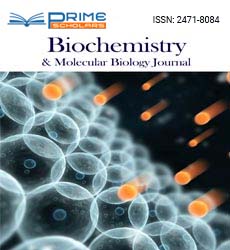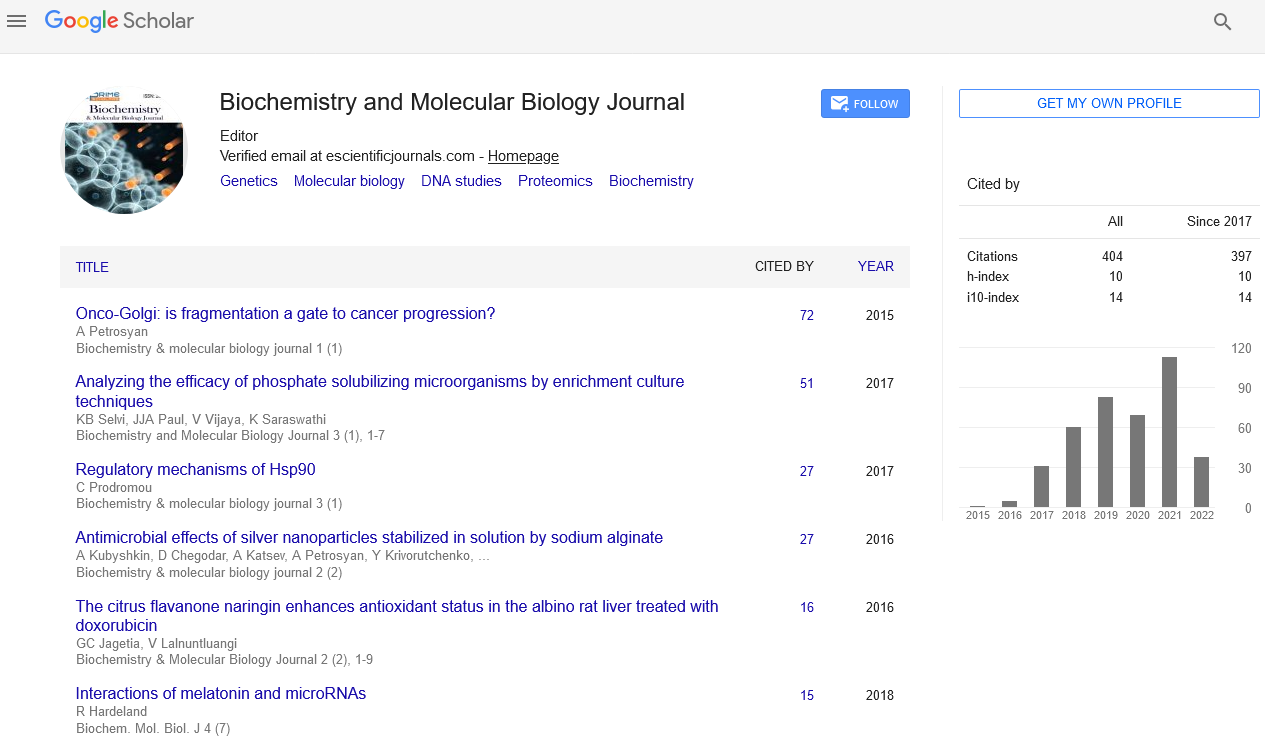Commentary - (2024) Volume 10, Issue 4
Understanding the Role of DNA Repair Mechanisms in Lung cancer
Sharif Serra*
Department of Bioscience, University of Science and Technology, Macao
*Correspondence:
Sharif Serra,
Department of Bioscience, University of Science and Technology,
Macao,
Email:
Received: 31-Jul-2024, Manuscript No. IPBMBJ-24-21598;
Editor assigned: 02-Aug-2024, Pre QC No. IPBMBJ-24-21598 (PQ);
Reviewed: 16-Aug-2024, QC No. IPBMBJ-24-21598;
Revised: 21-Aug-2024, Manuscript No. IPBMBJ-24-21598 (R);
Published:
28-Aug-2024, DOI: 10.36648/2471-8084-10.04.32
Description
Lung cancer remains one of the leading causes of cancer-related
deaths worldwide, largely due to its late diagnosis and complex
pathogenesis. Emerging evidence highlights the critical role of
DNA repair genes in the development and progression of lung
cancer. These genes are essential for maintaining genomic stability
by correcting DNA damage caused by various factors, including
environmental carcinogens. This article explores the role of DNA
repair genes in lung cancer, focusing on their mechanisms, impact
on disease progression, and potential for targeted therapies. DNA
repair genes are involved in several key mechanisms that correct
DNA damage and maintain genomic integrity. Several DNA repair
genes have been implicated in lung cancer, and their alterations
can influence disease risk and progression: Lung cancer is
strongly associated with exposure to environmental carcinogens,
particularly tobacco smoke, which contains numerous DNAdamaging
agents. Tobacco carcinogens can induce mutations in
DNA repair genes, impairing their function. These impairments
can lead to the accumulation of DNA damage and increased cancer
risk. Genetic variants in DNA repair genes can affect an individual’s
susceptibility to lung cancer. For example, polymorphisms in OGG1
and XRCC1 have been associated with increased lung cancer risk.
These variants can impact the efficiency of DNA repair processes
and contribute to carcinogenesis. Targeting DNA repair pathways
offers a promising approach for lung cancer treatment. For instance,
inhibitors of poly(ADP-ribose) polymerase, an enzyme involved in
DNA repair, are being investigated for their efficacy in treating lung
cancer with DNA repair defects. PARP inhibitors can exploit the
synthetic lethality of DNA repair deficiencies, selectively targeting
cancer cells with impaired repair mechanisms. Integrating
knowledge of DNA repair gene alterations into personalized
medicine can enhance treatment strategies. By characterizing
the specific DNA repair defects present in a patient’s tumor,
clinicians can tailor therapies to address these vulnerabilities.
Personalized approaches may involve combining DNA repair
inhibitors with conventional treatments to improve therapeutic
outcomes. Ongoing research is focused on several areas to
advance our understanding of DNA repair genes in lung cancer:
Further research is needed to elucidate the precise mechanisms
by which DNA repair gene alterations contribute to lung cancer
development and progression. Understanding these mechanisms
can inform the development of more targeted therapies.
Identifying new therapeutic targets within DNA repair pathways
and developing novel inhibitors or modulators could enhance
treatment options for lung cancer patients. Research into the
interactions between DNA repair genes and other cancer-related
pathways may reveal additional targets for intervention. Exploring
combination therapies that integrate DNA repair inhibitors with
other treatment modalities, such as immunotherapy or targeted
therapy, may improve treatment efficacy and overcome resistance
mechanisms. In conclusion, DNA repair genes play a crucial role in
the development and progression of lung cancer by maintaining
genomic stability and responding to DNA damage. Alterations in
these genes can influence susceptibility to lung cancer and impact
tumor behavior. Understanding the role of DNA repair mechanisms
in lung cancer has significant implications for diagnosis, treatment,
and personalized medicine. As research progresses, targeted
therapies and novel approaches based on DNA repair gene profiles
hold promise for improving outcomes for lung cancer patients.
Acknowledgement
None.
Conflict Of Interest
The author’s declared that they have no conflict of interest.
Citation: Serra S (2024) Understanding the Role of DNA Repair Mechanisms in Lung Cancer. Biochem Mol Biol J. 10:32.
Copyright: © 2024 Serra S. This is an open-access article distributed under the terms of the Creative Commons Attribution License, which permits unrestricted use, distribution, and reproduction in any medium, provided the original author and source are credited.

